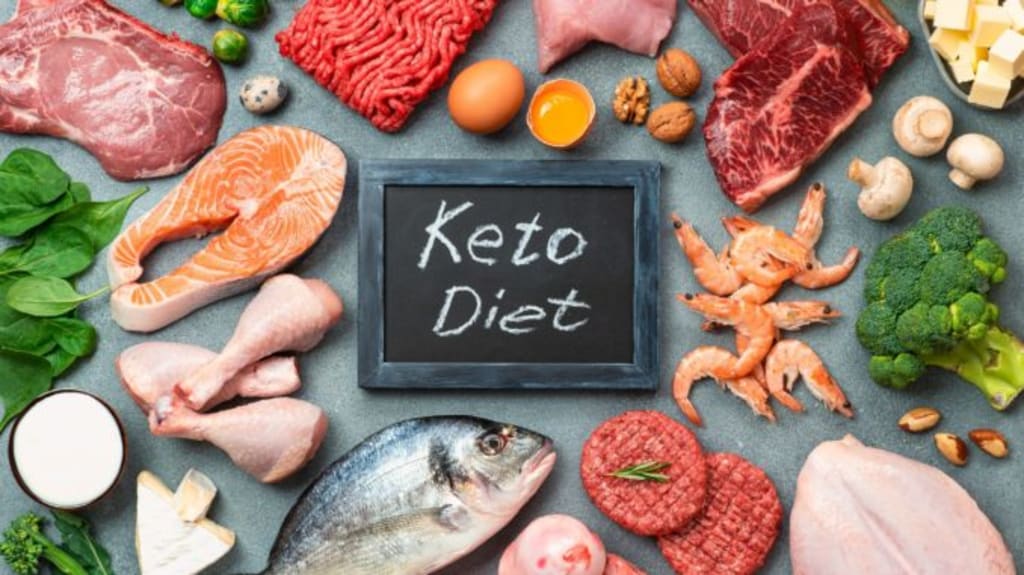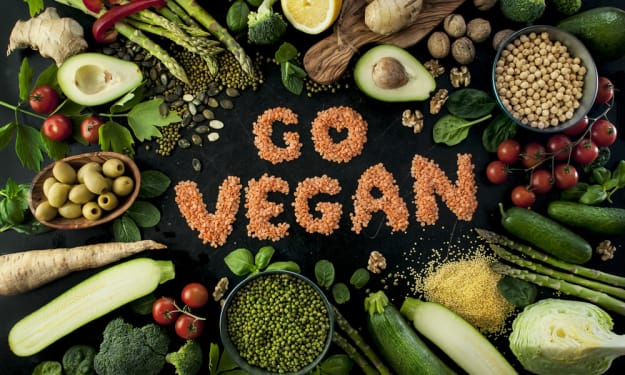The Guide to Keto Diet
Things you need to know about ketogenic diet

The ketogenic diet is a high-fat, low-carbohydrate diet that has become popular in recent years. It is based on the idea that by drastically reducing your carbohydrate intake and increasing your fat intake, your body will go into a metabolic state called ketosis, where it burns fat for fuel instead of glucose.
Here are some key points to keep in mind when following the ketogenic diet:
Macronutrient ratios: The macronutrient ratios of the ketogenic diet typically consist of 70-75% fat, 20-25% protein, and 5-10% carbohydrates. This low-carbohydrate intake is intended to encourage your body to enter a state of ketosis and burn fat for fuel.
Foods to eat: On the ketogenic diet, you should focus on eating whole, nutrient-dense foods such as meat, poultry, fish, eggs, healthy oils (such as olive oil and coconut oil), non-starchy vegetables (such as leafy greens and cruciferous vegetables), nuts, and seeds.
Foods to avoid: Foods that are high in carbohydrates and sugar, such as bread, pasta, sugar, fruit, and starchy vegetables, should be limited or avoided on the ketogenic diet.
Supplements: It's important to get enough nutrients on the ketogenic diet, as some vitamins and minerals may become depleted due to the low-carbohydrate nature of the diet. Supplements such as vitamin D, calcium, and magnesium may be necessary for some people.
Monitoring ketosis: To determine if you are in a state of ketosis, you can use tools such as ketone breath meters, urine strips, or blood meters.
Potential benefits: Proponents of the ketogenic diet claim that it can lead to weight loss, improved blood sugar control, and better mental clarity. However, more research is needed to determine the long-term benefits and risks of the diet.
Potential drawbacks: The ketogenic diet can be difficult to follow and may cause adverse side effects such as constipation, nutrient deficiencies, and increased cholesterol levels. It is also not recommended for people with liver or kidney disease, or for women who are pregnant or breastfeeding.
It's important to note that the ketogenic diet should be approached with caution and under the guidance of a healthcare professional, as it may not be suitable for everyone and may have negative impacts on health if not properly followed.
The ketogenic diet is a high-fat, low-carb diet that can help you achieve weight loss and improved health. If you're planning out your keto meals, here are some tips to get you started:
Focus on healthy fats: Healthy fats should make up the majority of your calorie intake on the ketogenic diet. Good sources of healthy fats include avocado, olive oil, coconut oil, butter, and nuts.
Limit carbs: Carbs should be limited to a very low amount in order to encourage your body to enter a state of ketosis, where it burns fat for fuel instead of glucose. Aim to consume no more than 20-50 grams of carbs per day.
Eat plenty of protein: While carbohydrates should be limited, protein is important for maintaining muscle mass and keeping you feeling full. Good protein sources on the ketogenic diet include meat, poultry, fish, eggs, and dairy products.
Plan your meals in advance: Planning out your meals in advance can help you stay on track and avoid reaching for unhealthy snacks or takeout. Make a grocery list and stock up on keto-friendly ingredients to make meal prep easier.
Get creative with your cooking: There are many delicious and easy-to-prepare keto-friendly recipes to choose from, including casseroles, stir-fries, soups, and stews. Try new recipes and experiment with spices and seasonings to keep things interesting.
Don't be afraid to eat plenty of healthy fats: The ketogenic diet is all about eating healthy fats, so don't be afraid to include plenty of them in your meals. This will help you feel satisfied and prevent cravings for sugar and carbs.
With these tips, you should be well on your way to planning out delicious and healthy ketogenic meals. Just remember to always choose high-quality, whole foods and limit processed and high-carb foods.
About the Creator
Setsuke Choo
Writing healthy guides for those curious beings






Comments
There are no comments for this story
Be the first to respond and start the conversation.